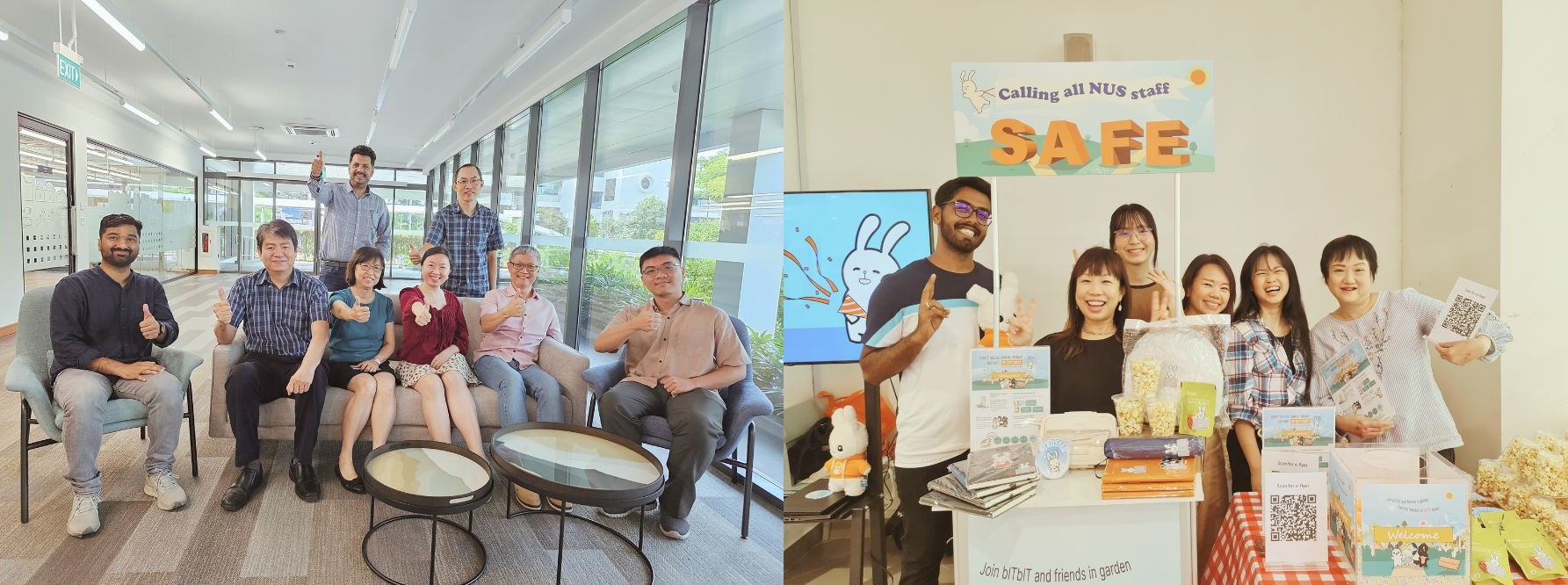In today's rapidly evolving digital landscape, digital transformation has become a top priority for organisations worldwide. NUS is no exception, as it recognises the importance of adapting to the changing times and harnessing the power of technology. As online threats are growing in sophistication, NUS IT has embarked on a journey to safeguard the University’s digital infrastructure through the Security And Freedom for Everyone (SAFE) programme. The SAFE programme strives to put in place various mechanisms and safeguards so that the NUS community can enjoy the freedom to work and study with peace of mind within the University’s protected digital environment. A unique feature of this multi-year initiative stems from its approach to achieve the perfect equilibrium between cybersecurity and user experience, ensuring that whilst staff and students are protected by a slew of defence and detection measures, they can enjoy an elevated user experience at the same time.
The significance of cybersecurity cannot be overstated. In Singapore alone, cyberattacks surged dramatically in recent years, with a staggering 145 percent year-on-year jump in 2021. In Q2 2022, around 2 million attacks were reported. These attacks, often involving ransomware and data theft, can have devastating consequences, with the average cost of a cybersecurity breach in Singapore estimated at a staggering SGD 1.7 million (approximately USD 1.3 million) – the highest in the Asia-Pacific region. At a prominent educational institution like NUS, cyberattacks may compromise personal information, financial and educational records, proprietary research, and result in financial losses.
Within the SAFE project, no efforts were spared to create a positive user experience while putting in place cybersecurity measures. The year 2023 saw the kick-off of the SAFE programme with the implementation of 2 key elements: Multifactor Authentication (MFA) and Workspace ONE (WS1). MFA adds an extra layer of security, acting as a digital guardian against compromised passwords and phishing attempts. By the end of 2023, staff had benefitted from this added security, and students will join the protected ranks in 2024.
 L – More SAFE team members. R – SAFE roadshow at Techno Edge canteen
L – More SAFE team members. R – SAFE roadshow at Techno Edge canteen
Workspace ONE (WS1) ensures that only trusted devices (i.e. devices protected with WS1 endpoint security) can access certain applications with confidential data, such as CHRS. Besides protecting our corporate devices with automatic updates and patch management, WS1 also provides an application store where staff can safely access official software and other NUS services. Staff using trusted devices can also access intranet resources, even when off-campus, without the need to connect to nVPN.
The adoption of passwordless authentication through cryptographic certificates on WS1-enrolled devices not only mitigates risks associated with weak or stolen passwords but also enhances user experience, making it safer, faster, and more convenient. Initial feedback from staff indicates a strong preference for passwordless authentication, citing time saved by eliminating the need for manual password entry. For students and alumni, the uNivUS QR authenticator serves as a secondary login mechanism, offering secure, passwordless authentication to them as well.
Beyond MFA and WS1, SAFE's vision will also empower users with greater choice and control. In the future, students and lifelong learners will be able to personalise their own NUS-IDs, fostering a stronger sense of belonging and community.
As the IT landscape evolves, and with cloud computing, the Internet of Things (IoT) and remote learning/working technologies becoming a part of life, NUS will remain vigilant in safeguarding its digital assets. To address these dynamic security challenges, NUS continuously researches advanced solutions, such as leveraging AI in both our defence and detection strategies.
 The SAFE garden is a symbolic representation of the SAFE programme's mission to create a secure and protected digital environment, drawing inspiration from Singapore's status as a safe garden city.
The SAFE garden is a symbolic representation of the SAFE programme's mission to create a secure and protected digital environment, drawing inspiration from Singapore's status as a safe garden city.
The SAFE programme marks just the beginning of a long-term roadmap, reinforcing NUS's dedication to setting the standard for educational institutions in a dynamic digital world. Stay tuned for future updates as NUS IT continues its journey towards excellence in user experience and cybersecurity.